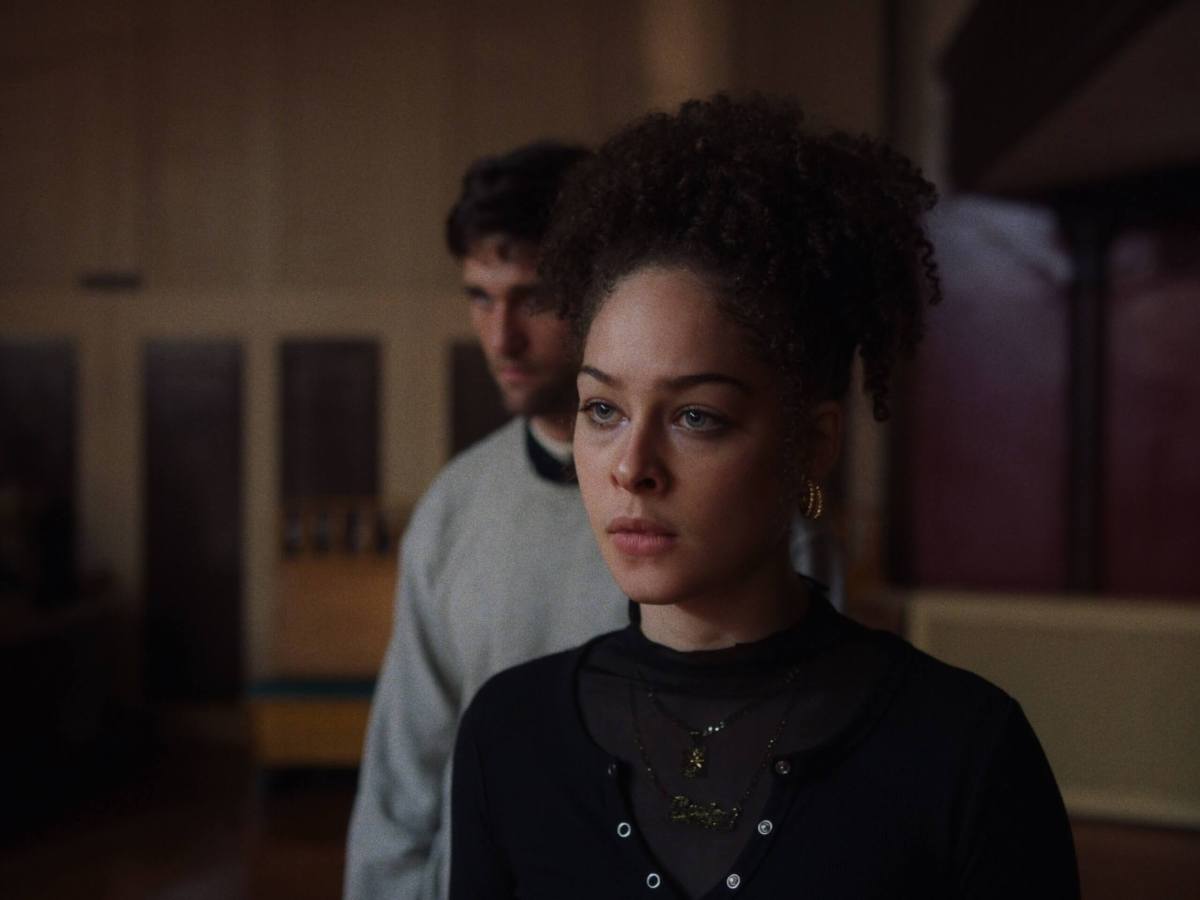Queer director Daniel Antebi’s “God’s Time” sees through the eyes of Dev (Ben Groh) until it changes course, but never escapes his dominance. Late in the film, another character turns to Dev and says, “You’re the opposite of a hero, right? You’re a f**king villain.” The first half hour of “God’s Time” showcases his many direct addresses to the camera. Its style is flashy and hyped-up, with whip pans, names appearing onscreen in purple, and caffeinated editing. The same words are spoken from five different camera angles and three different video formats. Antebi tries to replicate the feeling of being trapped inside your head as thoughts spiral out of control.
For Dev, those are the notion that Regina (Liz Caribel Sierra), a woman he constantly sees at 12-step group meetings, might finally make good on her promise to kill her ex-boyfriend. Dev and his friend Luca (Dion Costelloe) are both actors and recovering addicts. (Their friendship has a homoerotic tinge, especially on Luca’s part, but goes no further than bromance, and both are attracted to Regina.) Much of “God’s Time” takes place at the meetings they attend. Every time she shares, Regina tells the same story, in which her ex-boyfriend left her and took her dog. She usually ends it by saying she’ll kill her ex “in God’s time.” One day, she leaves that phrase out, which leads Dev to decide she’s finally going to make good on her words. He and Luca plan to track her down and prevent violence. Although she claims to work as a life coach, she’s actually relapsed, snorting coke with her married lover.
“God’s Time” is an archetypal New York film. It tries to capture the city’s energy, while creating characters who are often grating and abrasive. It’s driven by a saxophone-based score. Even its central plot takes place during a wild 24 hours. Luca and Dev don’t use substances any more, but as Regina suggests, they’ve become addicted to their idea of her, which has little to do with reality. Dev is closer to being a stalker than a savior.
The Safdie brothers’ cinema of anxiety is Antebi’s main model, but “God’s Time” is also a comedy of sorts. In fact, nearly 10 minutes of deleted scenes, broader and more farcical in tone, play out over the end credits. Even so, some of its ideas suggest reworked sketches, like the 10-second TV ad where Dev sells his bottled urine to drug-using parolees (before throwing a bottle of it at someone.) It never arrives at a tonal balance. The audience can see Dev’s flaws long before he does (or anyone else tells him off). Worse, “God’s Time” thinks we need to have everything explained — such as Dev’s lecture to the camera about the meaning of 12-step groups’ sponsors and the concept of a higher power — while still trying to create complex, flawed characters.
By the time the film itself starts to sober up, it long since got lost. It strains to retain a comic tone, even if it’s a dark one. This means that it hedges its bets about the consequences of Dev and Luca’s worst actions. Dev almost brings about the violence he claims to be trying to prevent, yet the results are easily fixed. It criticizes him for creating an inaccurate mental version of a woman’s life, but it never suggests a version of this story from her point of view. Instead, another trip back to 12-step meetings solves most of this trio’s problems. “God’s Time” rarely conveys much more than flash and noise. Even at 82 minutes, it’s a heavily padded out concept, more demo reel for A24 or the producers of “Euphoria” than a film with a life of its own.
“God’s Time” | Directed by Daniel Antebi | IFC Films | Opens at the IFC Center and streams on VOD Feb. 24th



































